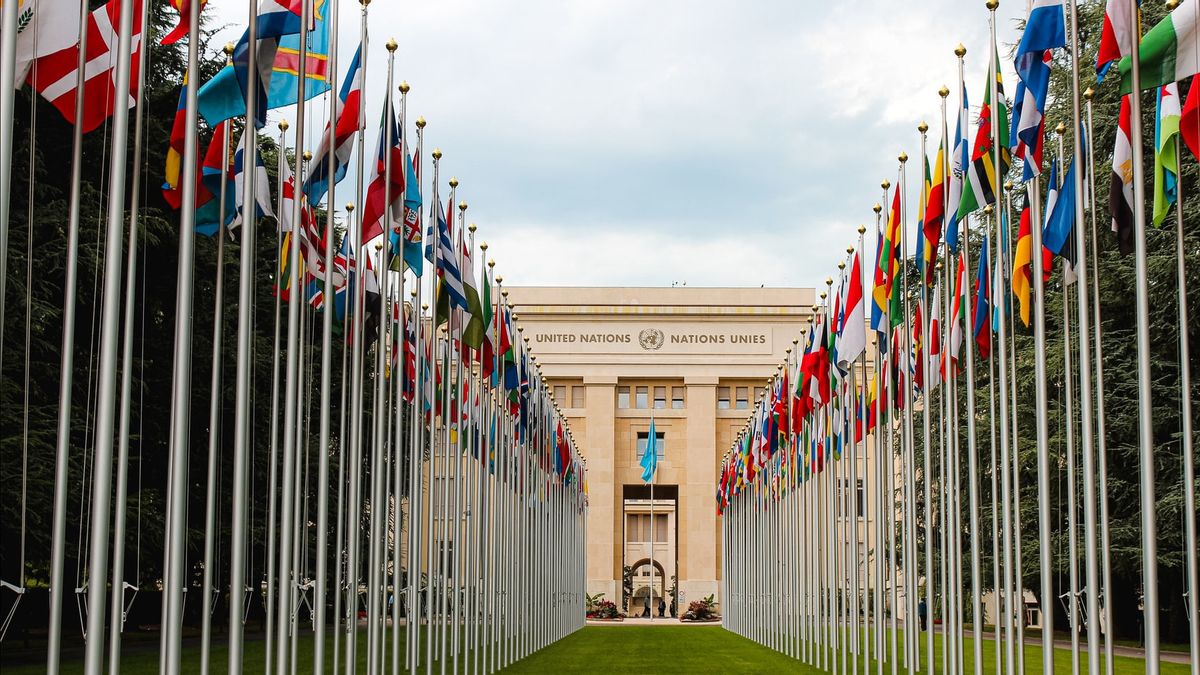JAKARTA - The United Nations General Assembly (UN) has officially designated March 15 as the International Day to Combat Islamophobia.
In response to this, Head of Muhammadiyah Central Executive H. Syafiq A Mughni believes that the resolution on the day to fight Islamophobia is a very important moment. However, according to him, understanding the resolution cannot be separated from the universal of human rights which has become a treasure in Indonesia.
"And then the document that also states eliminating discrimination on the basis of religion and belief and so on is a very important document that must be carried out together," said Syafiq in a discussion entitled "Turn back Islamophobia: Mainstreaming Moderation to Counter Islamophobia" online, Wednesday. , March 30.
"So that there is no term discrimination between religions which with this day of combating Islamophobia threatens Muslims above other people," he continued.
Because in historical reality, continued Syafiq, it shows that in various kinds of conflicts and tensions, Muslims are the people who are most disadvantaged. So that the UN resolution is not just an inanimate document but actually lives in the life of the nation and state as well as in social life.
"Therefore, in this implementation, I think it is very important to have a common understanding, because if there is no consensus on Islamophobia then of course people can make an assessment of any event that actually does not belong to the category of Islamophobia but is included. Or on the contrary which should actually be viewed as Islamophobia. but then it cannot be considered so nationally or internationally," he explained.
"I think we need to understand or have a common view of what Islamophobia is, what are the indications so that we can take action together to combat it," he continued.
According to Syafiq, there are two things that are very important in fighting Islamophobia. First, internal consolidation. "In terms of our teachings, of course we teach true Islam, Islam that is rahmatan lil alamin," he said.
The second is the historical factor. This is very important to provide awareness to inter-religious people. Therefore, there needs to be an interpretation or reinterpretation of how people saw the expansion in the early days of Islam.
"How do we see the crusades, how do we see colonialism, how do we see the struggle in Spain in Andalusia and so on. I think the history of the past must be interpreted, because otherwise it will continue to be internalized as a form that can be a seed of hatred in relations between religious people," he said.
"The wars that have occurred may be used as historical justifications for how we hate other people and will not trust each other. Therefore, if this attitude continues to be instilled, it will become a source of tension between religious communities," continued Syafiq. .
For the implementation of the UN resolution, Syafiq assessed that there were two very important factors. The first is the state factor.
"What needs to be done by the state, its policies, then the legal instruments that can be used for this. I think there needs to be the same encouragement and thinking, so that it will achieve the goals that the OIC member countries are fighting for, " he said.
The second is the civil society factor. According to Syafiq, the community is no less important, in equating the interpretation of Islamophobia. This includes religious leaders and religious institutions.
"To eliminate the factor of the emergence of Islamophobia in the community, Islamic mass organizations, religious assemblies and religious leaders need to think about how to define Islamophobia but also think about how it should be prioritized. So that it becomes the attitude of Muslims as well as for people outside of Islam," he said. he.
To note, the Resolution was introduced by Pakistan on behalf of the Organization of Islamic Cooperation (Organization of Islamic Cooperation).
The resolution was sponsored by the 57 OIC members and eight other countries including China and Russia. In the forum, Pakistan proposed the resolution of the anti-Islam phobia day. Pakistan's ambassador to the United Nations in front of the assembly said Islamophobia is a real thing.
Islamophobia, such as hate speech, discrimination and violence against Muslims, is growing in several countries. The Pakistani Ambassador also stated that the purpose of commemorating Islamophobia is to raise international awareness about the increasing phenomena of Islamophobia and anti-Muslim hatred.
This resolution is to unite the world's people, not to divide them. Indonesia's deputy representative to the United Nations said that Indonesia supports the resolution to establish the Anti-Islamophobia Day.
The English, Chinese, Japanese, Arabic, and French versions are automatically generated by the AI. So there may still be inaccuracies in translating, please always see Indonesian as our main language. (system supported by DigitalSiber.id)













